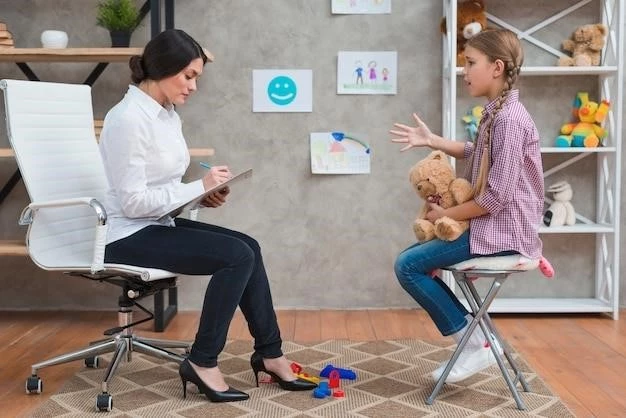Understanding Developmental Coordination Disorder
Developmental Coordination Disorder (DCD) is a condition that impacts a child’s coordination, motor skills, and cognitive abilities. In this article, we will explore the causes, diagnosis, and therapies available to support children with DCD.
Overview of Developmental Coordination Disorder (DCD)
Developmental Coordination Disorder (DCD) is a neurological condition that affects a child’s ability to coordinate movements and perform daily tasks. It is characterized by difficulties in motor skills, clumsiness, and coordination, which can impact a child’s school performance and social interactions.
Children with DCD may experience challenges in activities such as tying shoelaces, writing, catching a ball, and participating in sports. These difficulties can lead to frustration and low self-esteem. It’s important for parents and educators to recognize the signs of DCD early on to provide appropriate support.
DCD is not related to muscle weakness or lack of intelligence but rather to how the brain processes information needed for coordination. While the exact cause is unknown, it is believed to involve a mix of genetic, environmental, and neurological factors. Early diagnosis and intervention are key to helping children with DCD thrive.
Occupational therapy and physical therapy are common interventions for children with DCD. These therapies focus on improving motor skills, coordination, and cognitive abilities. By working with trained professionals, children can learn strategies to overcome challenges and improve their overall quality of life.
Causes and Diagnosis of DCD
The exact causes of Developmental Coordination Disorder (DCD) are still being researched, but a combination of genetic, neurological, and environmental factors are believed to play a role. Children with DCD often experience challenges in processing information related to movement.
Diagnosing DCD involves a comprehensive assessment by healthcare professionals, including pediatricians, occupational therapists, and physical therapists. The evaluation typically includes observing the child’s movements, assessing motor skills, and gathering information from parents and teachers about the child’s developmental history.
It is essential for parents and caregivers to communicate any concerns about their child’s coordination, motor skills, or developmental milestones to healthcare providers. Early identification of DCD can lead to timely interventions and support, ultimately improving the child’s quality of life and overall development.
If you suspect that your child may have DCD, seek guidance from a healthcare provider who specializes in pediatric development. Through a thorough evaluation and collaboration with specialists, a diagnosis can be made, paving the way for tailored therapies and interventions to help your child overcome the challenges associated with DCD.
Impact of DCD on Children
Developmental Coordination Disorder (DCD) can have a significant impact on children’s daily lives, affecting their academic performance, social interactions, and self-esteem. Children with DCD may struggle with activities that require coordination and motor skills, leading to difficulties in school tasks and participation in sports or recreational activities.
The challenges associated with DCD can also impact a child’s self-confidence and peer relationships. Children may experience frustration, anxiety, or avoidance of activities that highlight their coordination difficulties. It’s important for parents, teachers, and healthcare providers to offer support and understanding to help children cope with the challenges of DCD.
Children with DCD may face obstacles in everyday tasks such as dressing themselves, using utensils, or engaging in play with their peers. These challenges can affect their independence and overall quality of life. By acknowledging the impact of DCD and providing the necessary support and resources, children can develop strategies to navigate daily tasks more effectively and build confidence in their abilities.
Understanding the emotional and practical implications of DCD on children is crucial in providing holistic care and interventions. By addressing the challenges that DCD presents and fostering a supportive environment, children can learn to overcome obstacles, achieve their full potential, and thrive in all aspects of their development.
Recognizing Developmental Delay and Cognitive Impairments
Recognizing signs of developmental delay and cognitive impairments in children with Developmental Coordination Disorder (DCD) is crucial for early intervention and support. Parents and caregivers should be attentive to key indicators such as delays in achieving developmental milestones, difficulty with fine and gross motor skills, and challenges in coordination.
Children with DCD may also exhibit cognitive impairments that impact their ability to plan, organize, and execute tasks effectively. Parents and educators should watch for signs of difficulties in processing instructions, following routines, and maintaining focus on tasks. These cognitive challenges can affect a child’s academic performance and overall daily functioning.
If you notice persistent issues with motor skills, coordination, or cognitive tasks in your child, consider seeking an evaluation from a healthcare provider or specialist. Early detection of developmental delay and cognitive impairments can lead to timely interventions, therapies, and tailored support to help children with DCD overcome these challenges and reach their full potential.
Collaborating with healthcare professionals, therapists, and educators can provide a comprehensive approach to addressing developmental delay and cognitive impairments in children with DCD. By identifying and responding to these challenges early on, parents and caregivers can empower their children to build essential skills, enhance their independence, and improve their overall quality of life.
Addressing Motor Skills and Clumsiness
Addressing motor skills and clumsiness is a key aspect of supporting children with Developmental Coordination Disorder (DCD). Occupational therapy and physical therapy play vital roles in helping children improve their coordination, balance, and motor skills. Through structured exercises and activities, therapists work with children to enhance their fine and gross motor abilities.
Parents and caregivers can also implement strategies at home to support the development of motor skills in children with DCD. Encouraging practice with activities that challenge coordination, such as threading beads, cutting with scissors, or playing simple ball games, can help improve dexterity and hand-eye coordination.
Incorporating movement and physical activities into a child’s daily routine can further strengthen motor skills and coordination. Activities like dancing, yoga, or riding a bike can be enjoyable ways for children to work on balance, strength, and body awareness. Consistent practice and reinforcement of motor skills are essential for progress.
It’s important to create a supportive and encouraging environment for children with DCD as they work on improving their motor skills and coordination. Celebrate small achievements, provide positive reinforcement, and offer patience and understanding during the learning process. By addressing motor skills and clumsiness proactively, children can build confidence and independence in their movements.
Therapies and Interventions for Children with DCD
Therapies and interventions are essential in supporting children with Developmental Coordination Disorder (DCD) in overcoming challenges related to coordination, motor skills, and cognitive impairments. Occupational therapy focuses on improving everyday skills, such as dressing, writing, and self-care, while physical therapy targets enhancing strength, balance, and coordination.
Occupational therapists work closely with children to develop strategies for organization, time management, and task completion. Through structured activities and exercises, children with DCD can enhance their fine motor skills, spatial awareness, and sensory processing abilities. Occupational therapy aims to promote independence and functional skills in daily activities.
Physical therapy interventions for children with DCD focus on improving balance, coordination, and gross motor skills. Therapists use exercises, games, and movement-based activities to enhance strength, flexibility, and body awareness. By targeting specific areas of difficulty, physical therapy helps children improve their overall motor coordination and physical abilities.
In addition to therapy, interventions such as sensory integration therapy, speech therapy, and behavioral therapy may be beneficial for children with DCD. These complementary approaches address sensory processing difficulties, communication challenges, and emotional regulation issues that can impact a child’s development and overall well-being.
Collaboration between parents, therapists, educators, and healthcare providers is key in determining the most effective therapies and interventions for children with DCD. By implementing a multidisciplinary approach and tailored strategies for each child’s unique needs, it is possible to empower children with DCD to overcome obstacles, build skills, and thrive in their daily lives.
Supporting Children with Learning Difficulties
Supporting children with Developmental Coordination Disorder (DCD) who experience learning difficulties is essential for their academic success and overall well-being. Parents, educators, and healthcare professionals play vital roles in providing tailored support and accommodations to help children with DCD thrive in educational settings.
Individualized education plans (IEPs) can be beneficial for children with DCD, outlining specific goals, accommodations, and support services to address learning challenges. These plans may include modifications to classroom activities, extended time for assignments, and assistive technology to support communication and learning.
Teachers can create a supportive learning environment by implementing strategies that cater to the individual needs of children with DCD. Providing visual aids, breaking down tasks into smaller steps, and offering alternative ways to demonstrate understanding can help accommodate children with coordination and cognitive challenges.
Collaboration between parents, educators, and therapists is essential in developing a comprehensive support system for children with DCD. Open communication, regular progress monitoring, and adjustment of strategies based on the child’s evolving needs are key components of successful intervention and support.
By fostering a collaborative and inclusive approach to addressing learning difficulties in children with DCD, it is possible to create a supportive environment where each child can reach their full academic potential, build confidence in their abilities, and succeed in their educational journey.

Conclusion⁚ Empowering Children with DCD
In conclusion, empowering children with Developmental Coordination Disorder (DCD) involves a collaborative effort among parents, educators, healthcare professionals, and therapists to provide comprehensive support and interventions. By recognizing the challenges faced by children with DCD and addressing their unique needs, we can help them overcome obstacles and reach their full potential.
Early diagnosis, specialized therapies, and tailored interventions are crucial in equipping children with DCD with the skills and strategies needed to enhance their coordination, motor skills, and cognitive abilities. By fostering a supportive environment that celebrates effort and progress, children can build confidence and self-esteem as they navigate daily tasks and challenges.
It is important for parents and caregivers to advocate for their child’s needs, collaborate with school personnel to implement accommodations, and seek guidance from professionals specializing in developmental disorders. With the right support system in place, children with DCD can thrive academically, socially, and emotionally.
By promoting a positive and empowering mindset, focusing on strengths, and providing opportunities for growth and development, we can help children with DCD unlock their potential and lead fulfilling lives. Every child deserves the chance to excel, and with the right support and encouragement, children with DCD can overcome obstacles, build resilience, and achieve success in all aspects of their journey.
